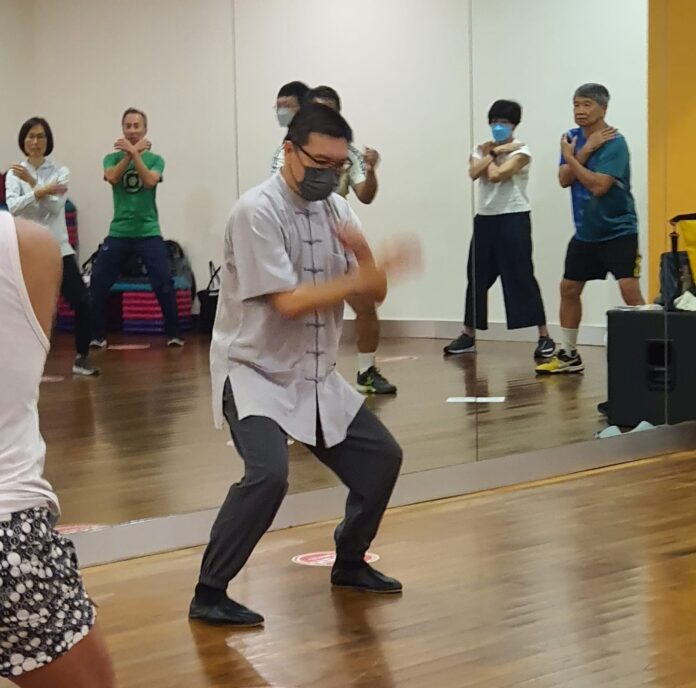Often described as “meditation in motion”, Taiji is a non-competitive ancient martial art form that combines gentle physical exercise and stretching with mindfulness. Originating from China, Taiji has been shown to improve balance control and flexibility, while helping to alleviate pain, symptoms of depression, stress and anxiety.
This martial art form has been embraced by individuals of all ages as it does not put too much stress on the muscles and joints, and may help reduce the risk of falls in older people.
On 3 December, NUSS’ Taiji Fitness Class instructor, Mr Nicholas Ang, conducted a trial session at Kent Ridge Guild House’s Aerobics Room to allow members to dip their toes into the world of Taiji. The signup was immensely positive leading up to that weekend, such that an additional time slot was even freed up to allow more members to attend this introductory session.
At the beginning of the session, Mr Ang gave an introduction on the basic concept of Taiji and the course content, which included Cheng Man Ching’s 37 Taiji form, followed by sword form and push-hand as the students progressed. Learning the weapon and push-hand form would help students understand and be in tune with the correct function of their body, both externally and internally.
Mr Ang also emphasised that proper body posture and the correct use of various related muscles had to be observed during the learning process. After the introduction, he led the participants through a simple exercise based on the meridian system, a concept in traditional Chinese medicine.
Coming from a third-generation descendant of Cheng Man Ching lineage and sixth generation descendant of Yang style lineage, Mr Nicholas Ang first begun his Taiji training in 1999 and later started coaching in 2006. In addition to being a formal disciple of Grandmaster Tan Ching Ngee, Mr Ang has also established a name for himself as co-author of the book, “Tan Ching Ngee’s Taiji Series: The Logic of Taiji” and assisting workshops in France and Taiwan.
He firmly believes that through regular practice, “most students can achieve better balance, improved blood circulation and relaxation of the mind”. To help achieve this, Mr Ang does not believe in using traditional and difficult to understand script to explain the theory of Taiji. Rather, he aims to use simple scientific terms so participants would gain a better understanding of the rationale behind the movements.
Want to try out Taiji for yourself? Contact Hafiz at [email protected] to find out more about the upcoming classes!







